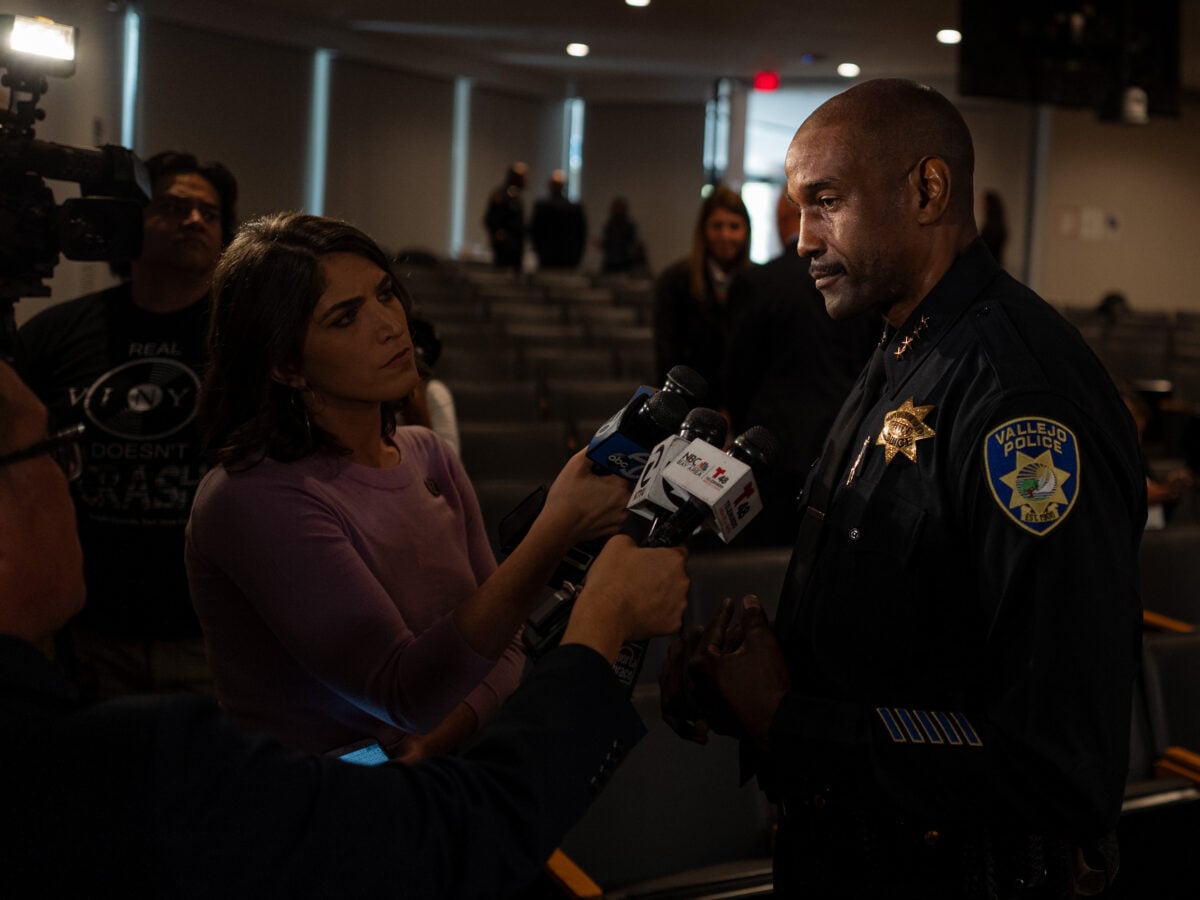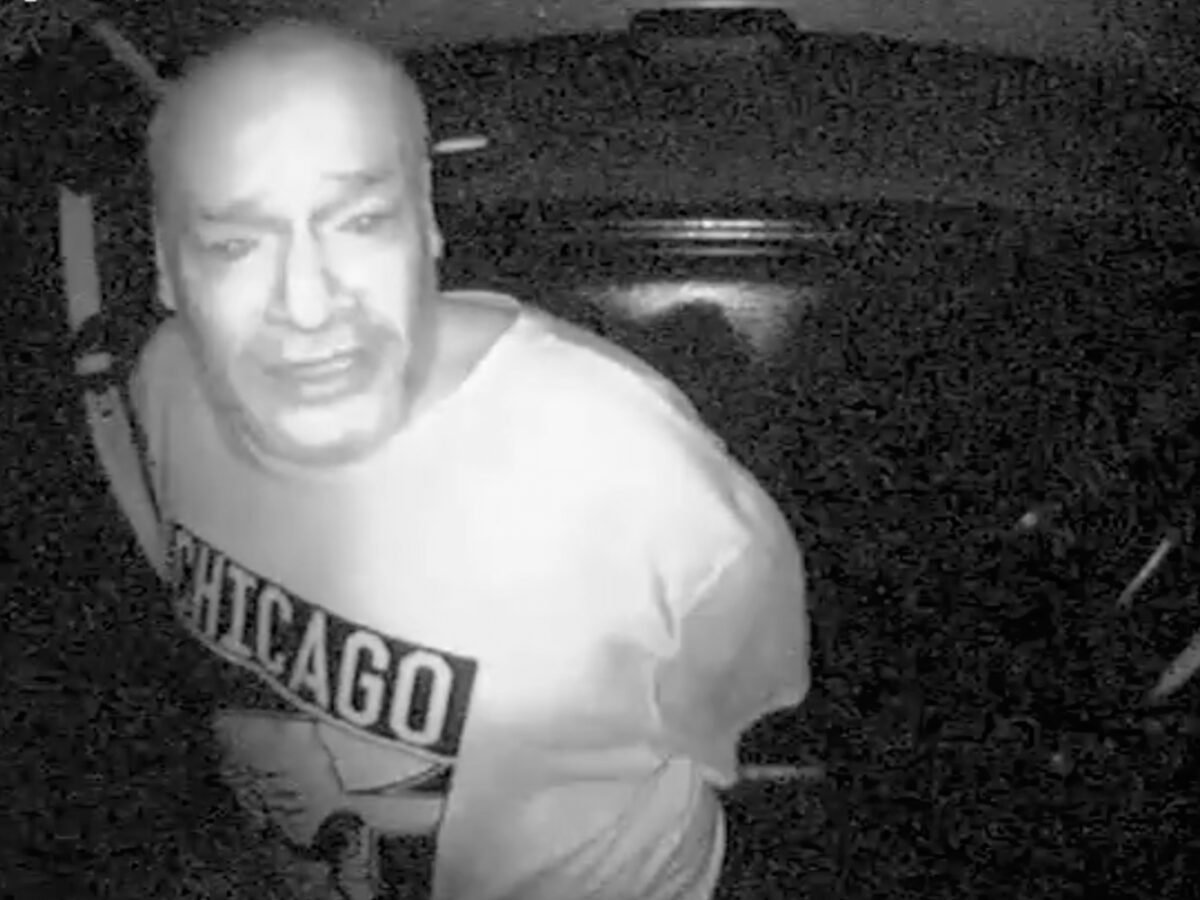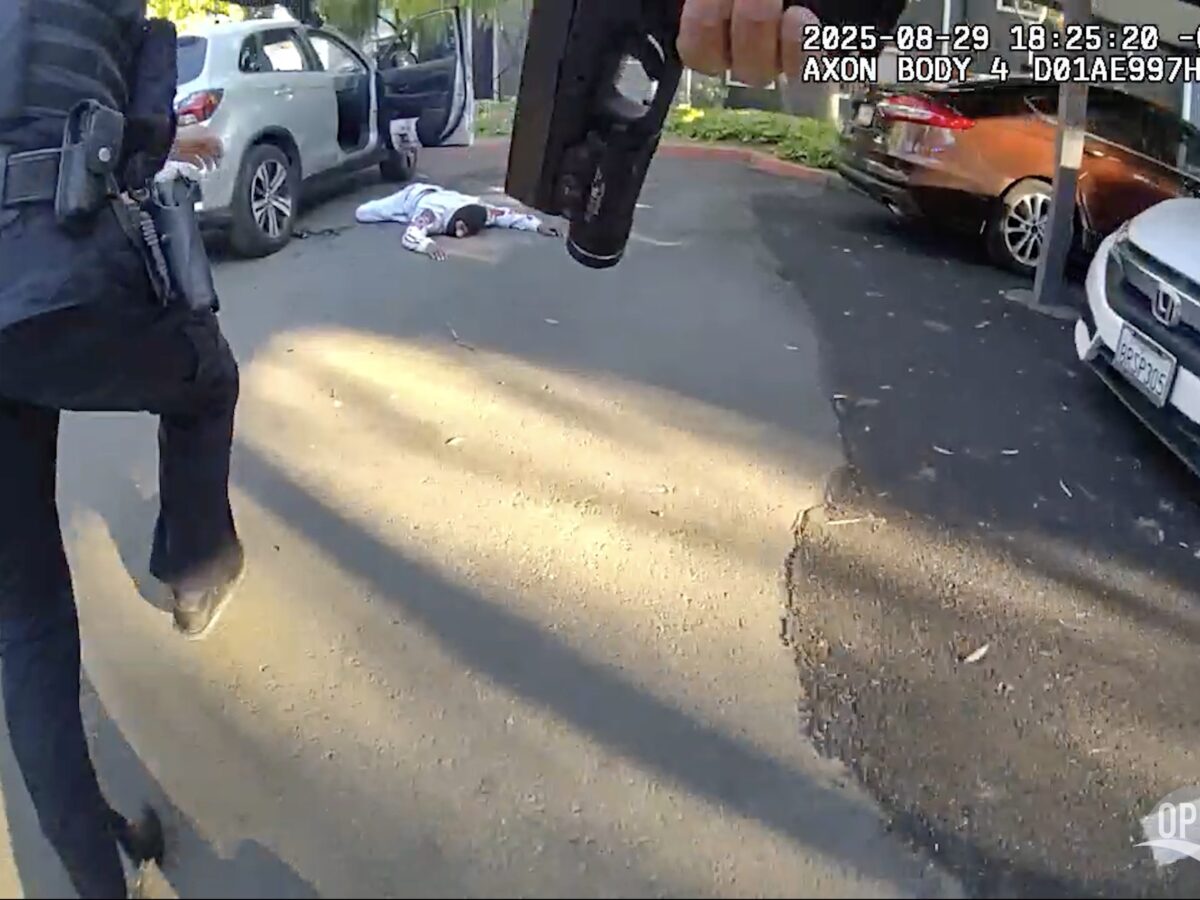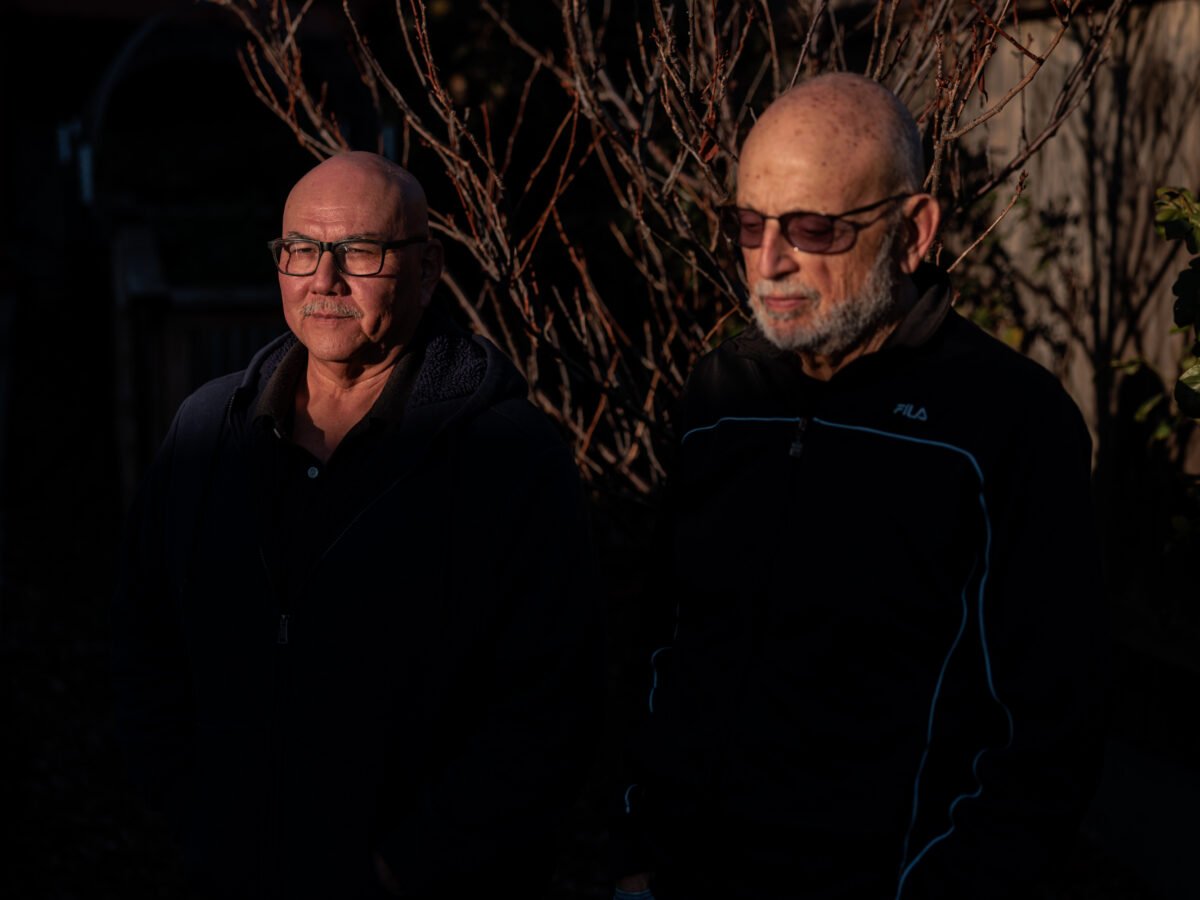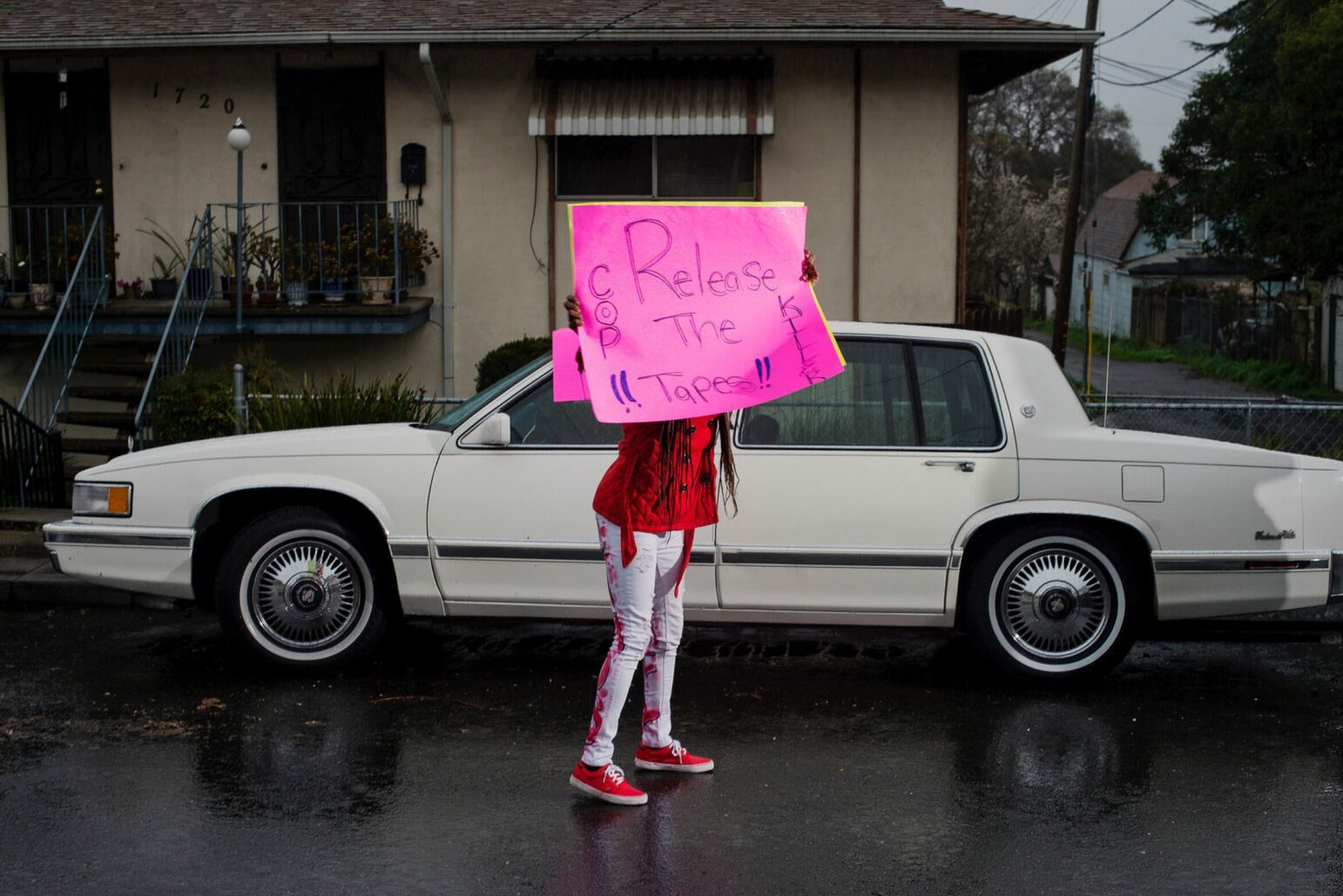
Just days into her transfer to the evidence unit two years ago, Vallejo police assistant Tina Encarnacion made her way to a tall metal cabinet known as the “homicide bookshelf,” and pulled case 12-11085.
Encarnacion found herself holding the case file for the notorious killing of Mario Romero, a young father whose death at the hands of Vallejo police in 2012 sparked citywide protests. Encarnacion documented her next steps in a public servant’s efficient prose.
“Per City Attorney this case has been approved for disposal,” she wrote in the file’s evidence log at 2:31 p.m. “Final disposition: Destroyed.”
Over the next several days, Encarnacion would empty box after box of evidence of police shootings into a large city dumpster.
In January 2021, officials for the city of Vallejo intentionally — and with approval from a senior attorney for the city — destroyed key evidence in multiple police killings and one non-fatal shooting, documents obtained in a public records lawsuit filed by Open Vallejo show. The city destroyed the records although many were set to be disclosed under California transparency laws — a potential crime, according to a motion filed by this newsroom last month.
To uncover how the evidence came to be destroyed by a department already under investigation by the state attorney general over the “number and nature” of its police shootings, Open Vallejo amended its public records lawsuit, deposed multiple city employees, and prompted the release of hundreds of pages of logs, reports, and internal communications. Together, the files reveal the city’s troubling pattern of anti-transparent practices in the wake of a new law that opened police shooting records to public scrutiny.
The files also show that the January 2021 purge violated city policy and potentially Vallejo’s agreement with the California Department of Justice.
Though the City produced emails to Open Vallejo which appear to show Assistant City Attorney Katelyn Knight authorizing the destruction of evidence in five cases, in an interview Friday, City Attorney Veronica Nebb said the purge had not been officially approved by her office because additional mandatory steps had not been followed. In court filings last year, Knight asserted that the destruction was “inadvertent.”
However, an investigation by Open Vallejo shows that the evidence purge in the five cases occurred over the course of nearly two weeks, that Knight seemingly approved it, and that the supervising detective who triggered the cases’ destruction was involved in all of them. A sixth case was also purged, although details surrounding its destruction remain unclear.
Now, Open Vallejo has asked the Solano County judge overseeing the lawsuit, Stephen Gizzi, to order that Vallejo implement measures to prevent improper purges, and to consider referring the matter for criminal prosecution.
Encarnacion declined to comment for this story. Knight and a spokesperson for the City of Vallejo did not respond to requests for comment.
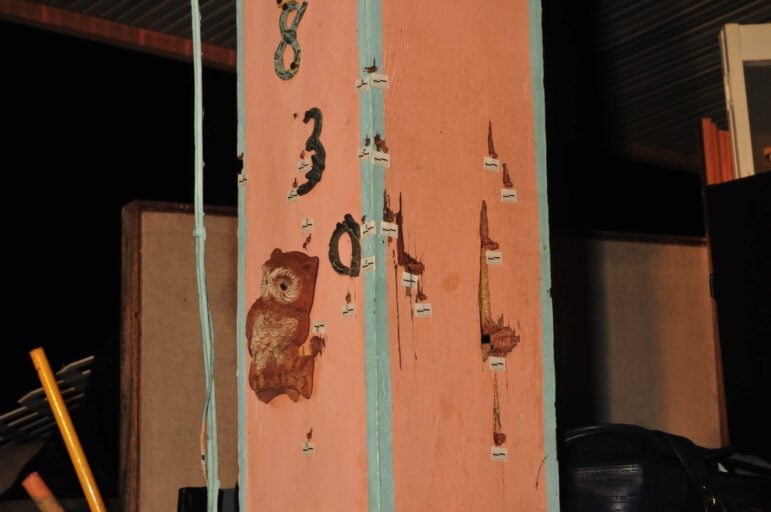
“We’re in a collaborative agreement with DOJ,” she said at a May 5 deposition. “They shouldn’t be deleting anything right now at all.”
In a motion filed on behalf of the city, Knight stated that the review by the California DOJ did not change the city’s timeline for destroying records, and that the DOJ had not requested the now-purged evidence.
The destruction encompassed hundreds of pieces of physical and audiovisual evidence from six police shootings that occurred in 2012 and 2013, two of the department’s bloodiest years in decades. The purged items include firearm evidence, interviews with witnesses and shooting officers, clothing from the victims, fingerprints, lab photographs, and detectives’ case files, according to property lists obtained by Open Vallejo. While documents, photographs, as well as video and audio files are subject to disclosure under state transparency laws, physical items such as firearms or clothing generally are not.
Documents indicate that some of the destroyed recordings had captured the victims’ words or actions in the minutes before their deaths, as in the case of 43-year-old Marshall Tobin, where surveillance footage from a business captured the killing.
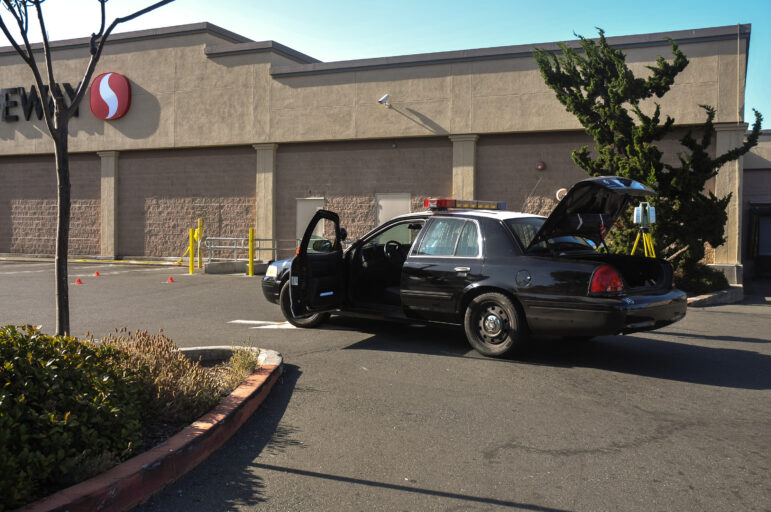
Among the items to have been spared from the purge were a few hundred dollars kept for “departmental use” from the victims, including $132.30 that belonged to Romero.
All six shootings involved at least one officer linked to the agency’s “Badge of Honor” scandal, revealed by Open Vallejo in 2020, in which officers bend the tips of their badges each time they kill in the line of duty.
‘Potential violations of law’
Designated by officials as the person most qualified to answer questions about the city’s public records practices, Joni Brown testified at the May 5 deposition that multiple safeguards should have prevented police personnel from destroying the evidence.
The purge violated a city policy that requires written approval from the city attorney and clerk’s offices, according to Brown, who testified that the proper form and signatures were never obtained. In a subsequent deposition on Dec. 21, Senior Vallejo Police Assistant Stephanie Dailey, the civilian employee who manages the evidence section, said she was unaware of that policy until the week of her testimony.
Another reason to safeguard the files, Brown said, was the city’s reform agreement with the California DOJ.
The agreement grants state investigators access to “any and all VPD records, files, and other materials” aside from attorney-client privileged information. As part of the review, the state DOJ served multiple investigative subpoenas commanding Vallejo to produce police records, including materials related to police shootings, such as body camera footage and reports by the department’s review board, public records show.
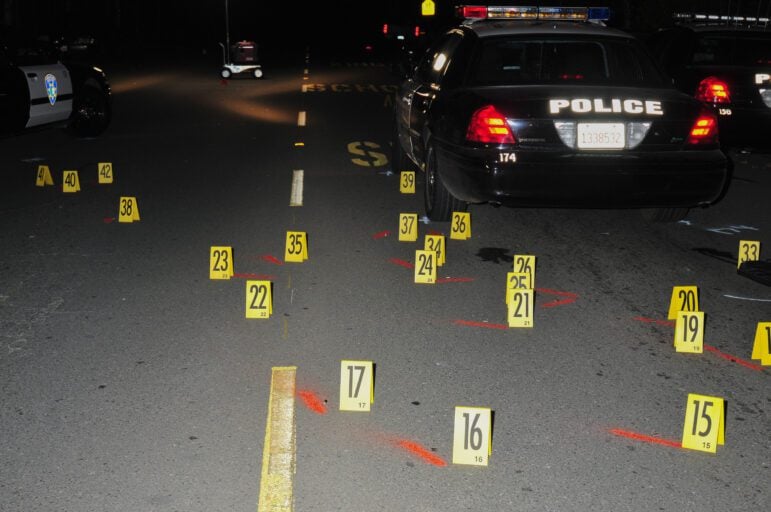
“No Item requested herein shall be destroyed or discarded” without permission, the first of at least three subpoenas read. The first subpoena, served on the city in May 2020, demanded records “created, maintained or altered” since 2015, and did not specifically list the six cases. The other subpoenas have not been made public. (Although most of the records in the destroyed cases would have been created before 2015, documents indicate that some of the purged cases were accessed between 2015 and 2021.)
In court papers, the city stated that the subpoenas did not seek the records that were purged. Open Vallejo also sought the subpoenas in the course of its litigation with the city, but received no response.
In December 2020, “concerned about the pace of production” of the subpoenaed records, an attorney with the state DOJ’s Civil Rights Enforcement Section emailed Vallejo officials and asked that they complete production by Feb. 15, 2021. Weeks before that deadline, between January 11 and 20, the records in five of the shootings were destroyed. (The records obtained by Open Vallejo do not show when the evidence from the fatal shooting of Sherman Peacock was purged.)
California DOJ officials would not confirm whether they sought the specific records that the city discarded; the agency denied a public records request by Open Vallejo for the other two subpoenas and other documents, citing a legal exemption for records relating to “an investigation into potential violations of law.”
According to Brown’s testimony, however, the city was supposed to refrain from destroying any documents about police use of force because of its reform agreement with the state.
Knight, the lead attorney defending Vallejo in the public records lawsuit, later disputed the words of the city’s witness.
“Ms. Brown’s understanding is insufficiently nuanced,” Knight argued in a motion filed on Aug. 30. “That agreement does not change the City’s retention schedule,” she added.
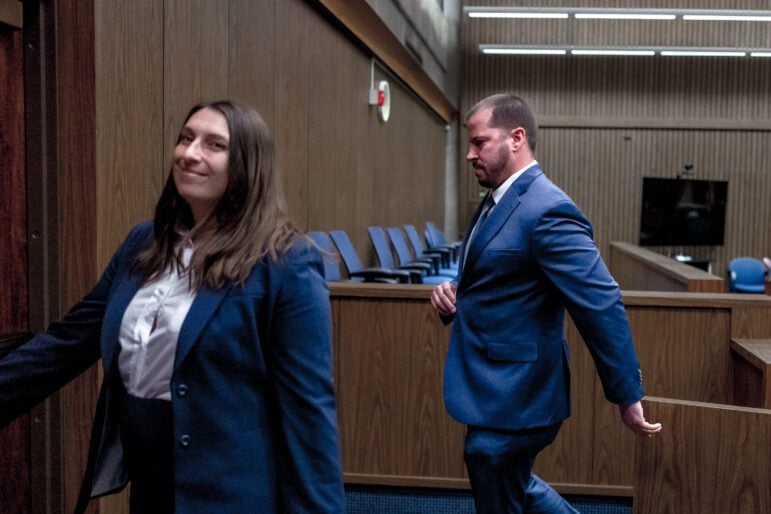
But in an interview five days before the city filed that motion, Brown said that a lawyer for the city told her and others not to destroy police records during a meeting about the DOJ agreement. “They gave us the direction,” Brown said, “that the records would need to be held.”
Dailey, the senior police assistant in the evidence section, testified that she was unaware of any notice to refrain from destroying records because of the city’s agreement with the DOJ. In fact, she testified that she had no idea the California DOJ was investigating the department at all.
“I’m learning of that right now,” Dailey said at her deposition. She declined to comment.
‘Potential conflict of interest’
Assistant City Attorney Knight stated in court filings that the destruction happened “inadvertently” and that the evidence “should have been retained” due to Open Vallejo’s pending public records requests.
But Knight did not mention that she authorized Vallejo police staff to proceed with the destruction.
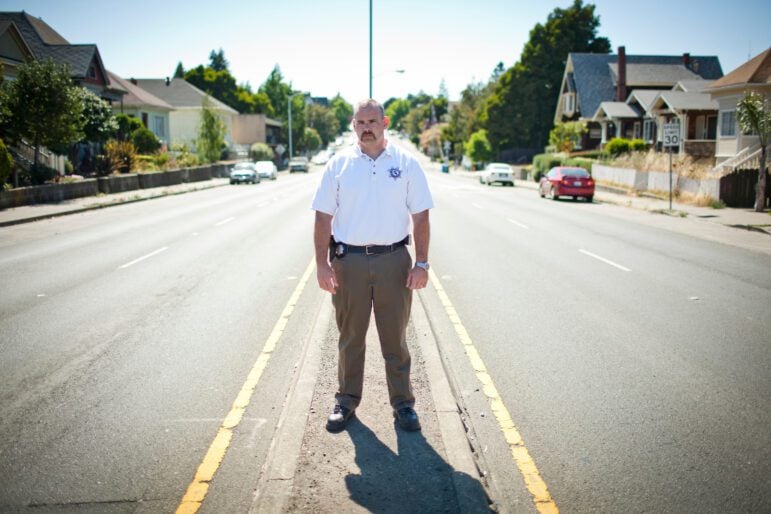
On Jan. 8, 2021, Det. Sgt. Mathew Mustard emailed Knight about five of the now-destroyed cases, which he said were located while “doing research” on police shootings.
“Before we return, dispose, or destroy any of this Evidence we wanted to clear this with the City Attorney’s Office,” Mustard wrote, copying two other members of the Vallejo police command staff.
“These are all ok to release or destroy per the retention schedule,” Knight responded. “They are not affected by the DOJ subpoena.”
Knight also told Mustard that an outdated litigation hold prevented the destruction of the Romero case file.
“I’ll rectify that now,” Knight wrote.
In the interview Friday, City Attorney Nebb said that Knight’s email was not an official approval because the policy required written signatures, which had not been obtained.
“Authorization to purge would have required additional steps which were not taken,” Nebb said.
Three days following Knight’s email, Encarnacion began purging the files — and with them, records of Mustard’s own involvement in the investigations. (It remains unknown whether any supervising official prompted or approved the destruction of the sixth killing, that of Marshall Tobin, which records show Mustard did not investigate.)
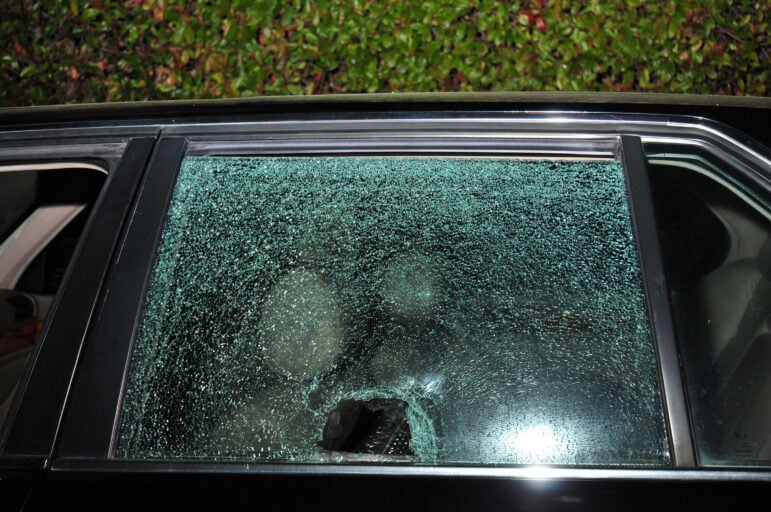
Detective Mustard, who between 2010 and 2019 was also Vallejo’s police union president, was a lead investigator in all of the five cases he prompted to have destroyed and was at the scene during one of them, according to a review of the case files by Open Vallejo. The detective conducted interviews of shooting officers in each case, meaning he likely appeared in several of the videotaped interviews that were destroyed at his direction.
Mustard additionally coordinated the booking, and at times collection, of some of the evidence that was subsequently destroyed, public records show. At the time, Mustard was in charge of the evidence section and had in-person access to the department’s evidence room when escorted by evidence personnel, Dailey testified.
Dailey herself collected evidence in five of the destroyed cases while also bearing responsibility for storing evidence — “dual roles” that do not “coincide with best practices,” according to a draft evidence study completed in Vallejo in 2020 by the California Commission on Peace Officer Standards and Training. Such overlap between investigative and evidence functions can create a “potential conflict of interest,” according to guidelines the state agency published in 2022.
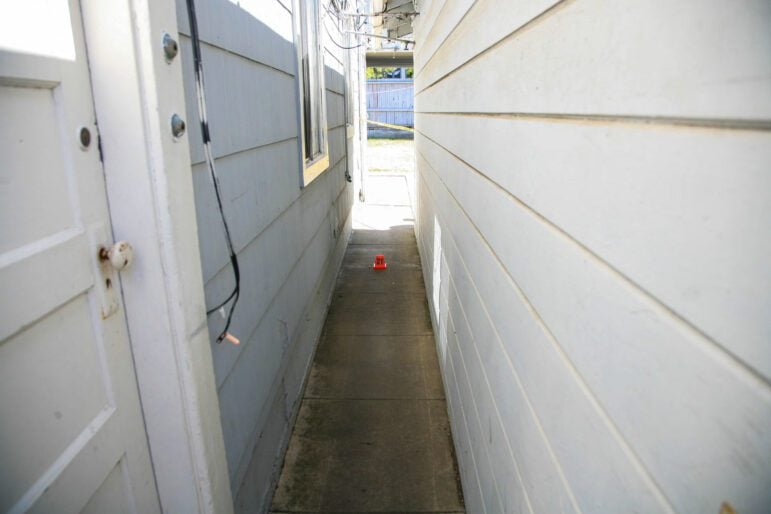
The six cases were not destroyed because they were the oldest on file; the city still possessed evidence from earlier police shootings, according to Dailey’s deposition. The purge was also unlikely to have been triggered by a lack of space, as police shootings represent only a small fraction of the files maintained by the police department, she testified. In 2013, the Vallejo Police Department took over the children’s section of the local library to expand its evidence storage.
In court documents, Knight did not explain how the destruction could have been inadvertent when it was initiated, approved and carried out with the knowledge of senior Vallejo officials, including herself. She did not respond to requests for comment.
Forty-three thousand eight hundred seventy-eight dollars
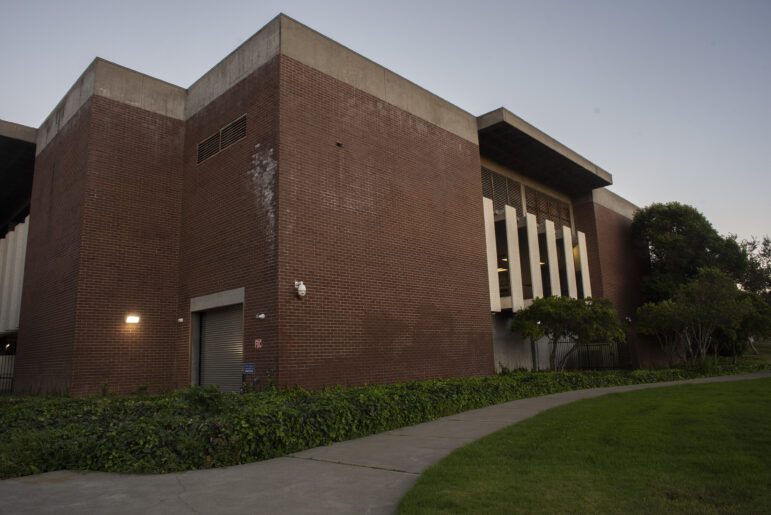
While Vallejo retains case files for other types of homicides indefinitely, Dailey testified, police killing cases are purged only five years after an investigation is completed unless an ongoing lawsuit prevents their destruction. The same is true for nonfatal shootings.
But that was not always the case: Vallejo changed its retention policy just three weeks before a landmark police transparency law, Senate Bill 1421, made those and other police records public.
On Dec. 11, 2018, the Vallejo City Council changed the retention schedule through its consent calendar, a process generally reserved for non-controversial issues which allows city councils to pass multiple items at once. Records the city previously retained for at least 25 years, in line with a state recommendation, would now be kept for five years following closure of the case, according to city documents.
Dailey testified that in her experience, the city had never destroyed evidence in a police shooting before that day.
Dailey also testified that an internal review concluded that other than the January 2021 purge, the city has not destroyed evidence in any police shooting since 2019, when the new police transparency law took effect.
However, evidence logs and internal records obtained by this newsroom indicate that Vallejo has gotten rid of evidence in at least two dozen other shootings since 2000. Based on the timeline Dailey provided in her deposition, it appears that Vallejo destroyed hundreds, if not thousands, of additional pieces of evidence between the change in its retention schedule and when the police transparency law took effect 21 days later.
Many of those records would have become public under the new law.
Vallejo Mayor Robert McConnell, who as a councilmember voted in 2018 to change the retention schedule, called the destruction of records “unfortunate” in an interview Saturday.
McConnell appeared willing to revisit the question of how long Vallejo retains records of police shootings.
“I think we have a city council today that might look at things differently than the City Council of years past,” he said. “Maybe now is the time to make these changes.”
Open Vallejo has sought Vallejo police records, including many of the now-destroyed files, repeatedly since 2019. For years, the city has misclassified cases and used inapplicable legal exemptions to avoid disclosing a variety of records, this newsroom alleges in its lawsuit.
For example, Vallejo initially claimed, in September 2019, that it did not possess audiovisual files “for older incidents,” including the 2017 killing of Angel Ramos. (The city subsequently released photographs and recordings from that case.)
That November, Vallejo police disclosed written reports from several cases much older than the Ramos killing, including written reports from the six shootings in which evidence was destroyed.
The city also agreed to produce some audio and video records it previously claimed did not exist — for a price.
To acquire the records identified by the city would have cost $43,878, including $25,608 for audiovisual records relating to the now-destroyed cases, according to a cost estimate provided by the city. Six months later, the California Supreme Court ruled such fees illegal. Following the ruling, Vallejo began disclosing some audiovisual records.
Open Vallejo filed its public records lawsuit on Sept. 13, 2021, and learned of the evidence destruction last May, after which reporters filed a records request for more information. The city disclosed evidence logs containing additional details more than three months later.
Lawyers for Open Vallejo alerted the state attorney general to the destruction of evidence, and have asked Judge Gizzi to consider a criminal referral for the destruction of public records, a rare occurrence. Open Vallejo also presented its findings to a spokesperson for the state DOJ, who declined to comment for this story, citing the agency’s ongoing review.
To prevent the city from destroying public records in the future, this newsroom is seeking a court order requiring Vallejo to implement additional policies and training, and declaring that the city violated the public’s rights under the California Public Records Act.
The lawsuit is ongoing, but in a September hearing, Judge Gizzi indicated that the remedies in the case might hinge on whether the records were destroyed intentionally.
“If it’s determined that the city of Vallejo said, ‘Oh gosh, we better get rid of these records,’” the judge said, “you will not convince this court that it was the legislature’s intent that that should be an out afforded to public agencies.”
The destroyed records
The department destroyed nearly all audiovisual and physical evidence in the six cases, a review by Open Vallejo has found.
Some autopsy and crime scene photographs had been stored on computers, but more than 280 other pieces of evidence were destroyed, including from highly controversial cases.
The 2012 killing of 23-year-old Romero, the father whose death led to enduring protests, remains one of Vallejo’s most costly and highly contested police shootings. (The civil rights lawsuit settled for $2 million in 2015.)
Vallejo officers Sean Kenney and Dustin Joseph shot Romero 30 times. Kenney, who fired 24 rounds and hit Romero at least 23 times, jumped on the hood of the young man’s car during the incident, records show. Joseph later told investigators that Romero had grabbed the butt of a handgun before he was shot. Although no firearm was found, Kenney claimed that he retrieved a pellet gun near the floor behind Romero’s seat following the shooting.
Forensic evidence, audio of the officers’ post-shooting interviews, and the pellet gun allegedly found in Romero’s car were destroyed in the 2021 purge, along with the young man’s t-shirt, baseball hat, and a bracelet found on his wrist.
Kenney and Joseph did not respond to requests for comment.
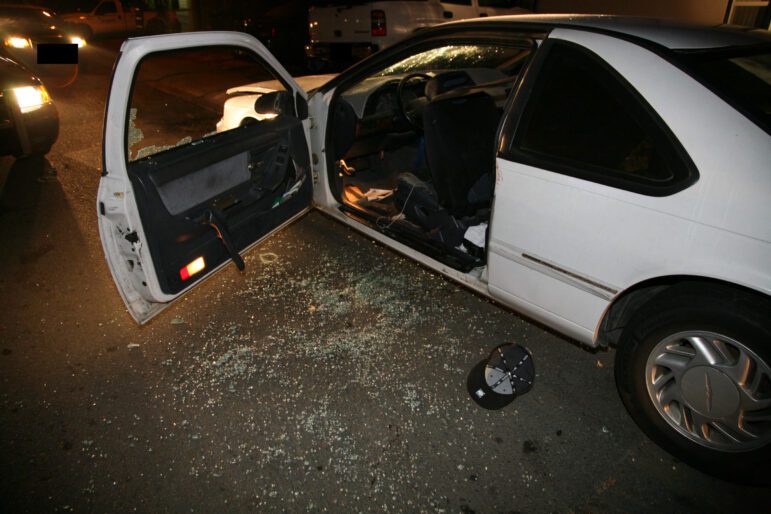
As for Tony Ridgeway, records indicate Ofc. Joshua Coleman shot him in the groin after he likely mistook a can of beer for a firearm. Ridgeway survived.
Detective interviews with Coleman, radio traffic recordings and two beer cans were destroyed in the case. Coleman declined to comment.
Aside from the photographs stored on computers, Vallejo does not have a backup of the destroyed audiovisual records, Brown testified. Some of the other physical evidence, such as clothing or beer cans, would not have been disclosable under California law. In response to a public records request filed by Open Vallejo, the California Department of Justice said that it possessed no records relating to the shootings.
No city employee has been disciplined for the purge, according to Brown’s May 5 testimony.
Pattern or practice
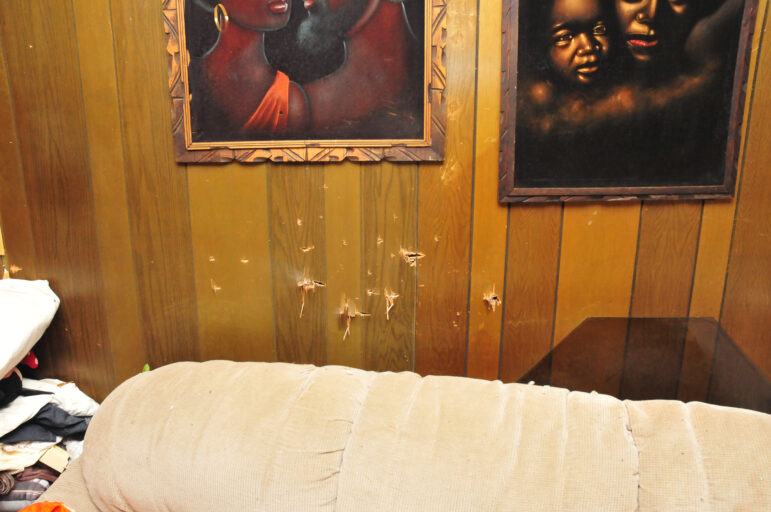
Vallejo police have a history of mishandling evidence in high-profile cases, including the city’s two most recent killings by police.
In July 2020, the city announced that officers had disposed of the windshield through which Det. Jarrett Tonn shot 22-year-old Sean Monterrosa the month before. The detective told investigators that he mistook a hammer in Monterrosa’s sweatshirt for a gun.
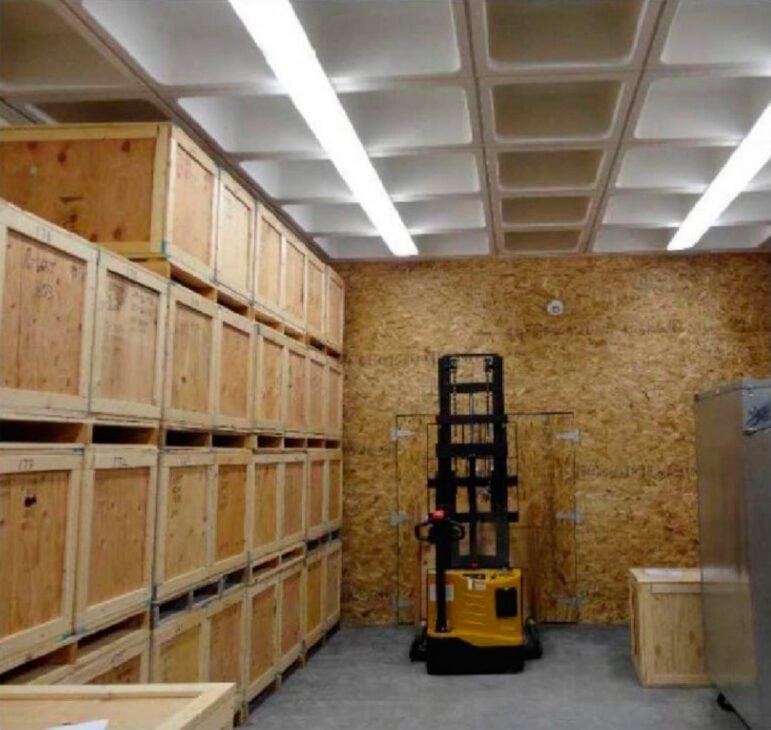
Then-State Attorney General Xavier Becerra initiated an investigation into the destruction of the windshield, but two and a half years later, the results have not been announced. A separate administrative investigation recommended one officer for discipline, but a subsequent hearing found he should receive corrective action instead, public records show.
Another piece of evidence was lost in the Monterrosa shooting: footage from a drone that recorded the killing, according to public records. Instead of following the department’s usual protocol by booking the device into evidence, Capt. Jason Potts took it to the office of then-Police Chief Shawny Williams. When the drone was transferred to Sgt. Mustard and former software developer Det. Kevin Rose hours later, Rose found “some problem with the SD card” that prevented him from viewing the files; a subsequent examination by the U.S. Secret Service revealed that the footage had been overwritten with zeros. It is unclear whether authorities criminally investigated the destruction of the drone evidence.
Six weeks after Monterrosa’s killing, the California Commission on Peace Officer Standards and Training began, at the request of Potts and Williams, a study of Vallejo police’s evidence and property unit.
The study found that Vallejo needed “better accountability measures so we can easily perform purging, audits and inventories,” according to a September 2020 email Potts sent to the department’s top leadership.
Despite the warning flags raised by POST, Vallejo’s evidence problems persist.
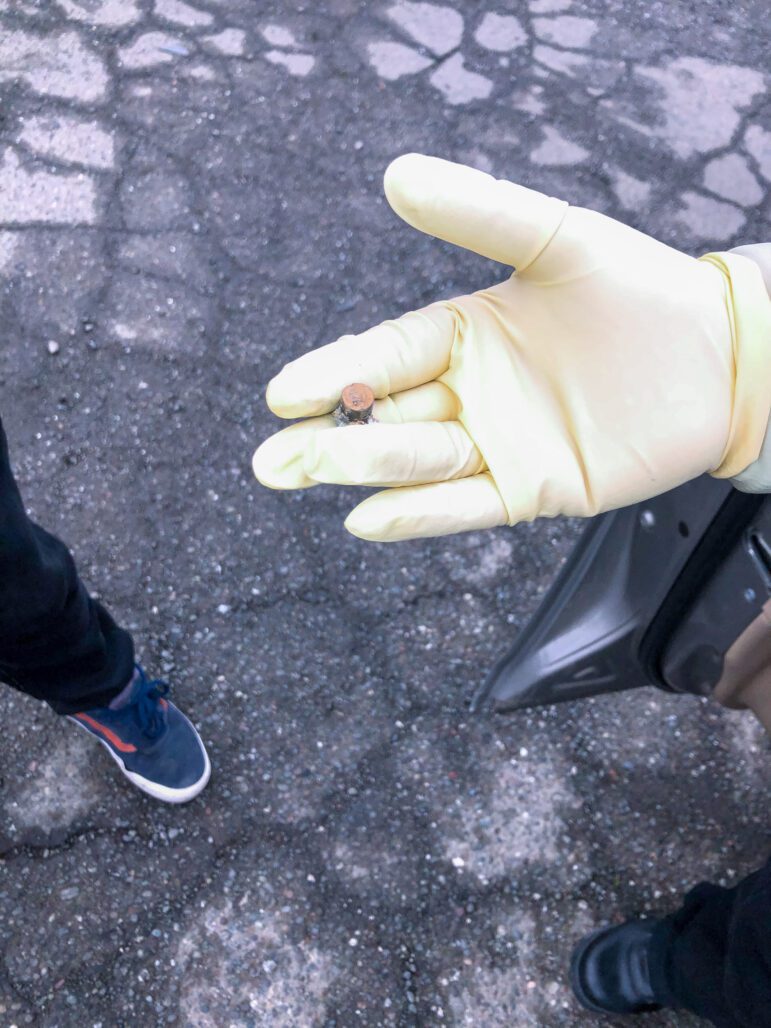
Last March, experts and a lawyer for the family of Willie McCoy examined the Mercedes in which the 20-year-old was shot 38 times by Vallejo police in February 2019. They found bullets that had apparently been missed by the city’s forensic technicians lying on the back seat, according to Melissa Nold, who represents the family in a civil rights lawsuit against the city.
Mustard supervised both the Monterrosa and McCoy investigations. Knight is one of the lead attorneys defending the city in the resulting lawsuits, court records show.
Both the public records and evidence sections of the Vallejo Police Department remain understaffed, according to the POST study and deposition testimony. Brown testified that she asked for a team to help process public records requests.
“I don’t have that. I have me,” she said. “I try my best to be that reminder that there should be nothing that gets erased.”
Brown has since left Vallejo to join the Napa Police Department. The motion filed last month by Open Vallejo seeks an order prohibiting the city from destroying additional records until it produces public records that are still being withheld.

